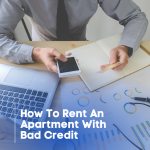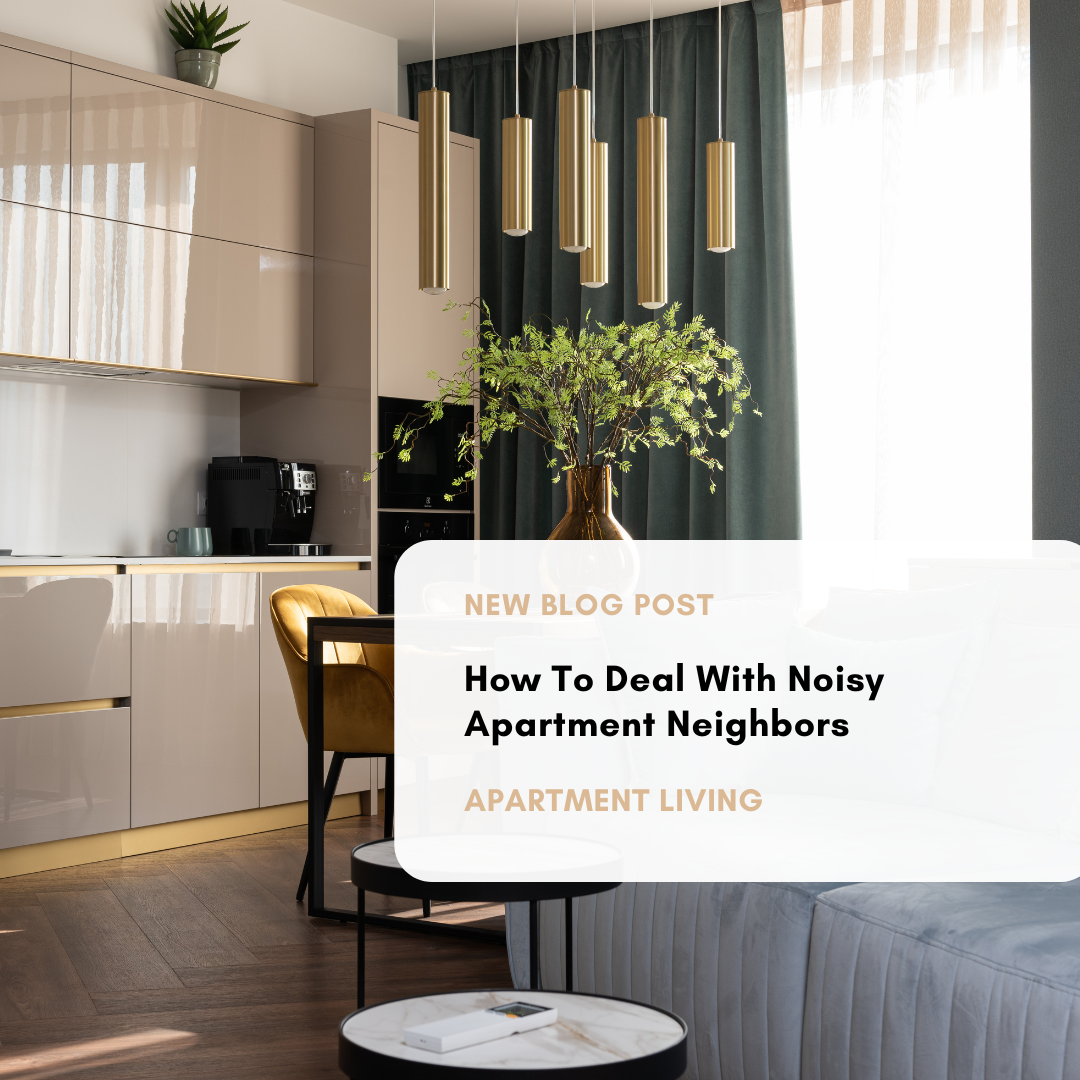
How To Deal With Noisy Apartment Neighbors
March 1, 2023 9:00 am Leave your thoughtsNoisy apartment neighbors are one of the most common issues that renters face. Loud and excessive noise can deter your life and how you feel about your community. Not to mention, the noise can disrupt you, your family, and your space. It’s important that you know how to get the most out of your apartment.
Dealing with noisy apartment neighbors can be challenging. Consider the steps below to fix the noise issue:
- Identify the source of the noise: Before taking any further action, it’s essential to identify the source of the noise. Ask yourself, is the noise coming from a particular apartment or a common area? You can also consider, is it happening during specific times of the day or night? Understanding the source of the noise problem will help you address and communicate it effectively.
- Discuss with your apartment neighbors: The best way to address loud apartment noise is to talk to your neighbors directly. Develop a relationship that helps you approach them and discuss. Approach your neighbors calmly and respectfully, and explain the issue. Your neighbors may not even realize they are causing a disturbance. A simple conversation may be enough to resolve the problem. It’s always best to start by talking to them directly.
- Document the noise: If talking to your neighbors does not work, start documenting the exact times and levels of noise. Keep a log of when the noise occurs and how loud it is. You will likely need your noise log to show to your landlord or property management company.
- Contact your landlord: If talking to your neighbors and documenting the noise does not work, contact your landlord or property management company. Your landlord may be able to take action, such as sending a warning letter to your neighbors or even evicting them if the noise continues. Your property management company should support you and help to get it solved.
- Involve the police: If the noise is excessive and disruptive, you may need to involve the police or apartment security. The police can issue a noise violation and may be able to mediate the situation. This is the last resort, but sometimes loud noise situations require local authorities.
It’s no secret that dealing with noisy apartment neighbors can be frustrating, but there are steps you can take to address the problem. Start by identifying the noise source, talking to your neighbors, and documenting the issues. If these steps do not work, contact your landlord or property management company or involve the police if necessary. Taking action will help you feel happier at home in the long run! If there are no improvements, it may be time to find a new apartment.
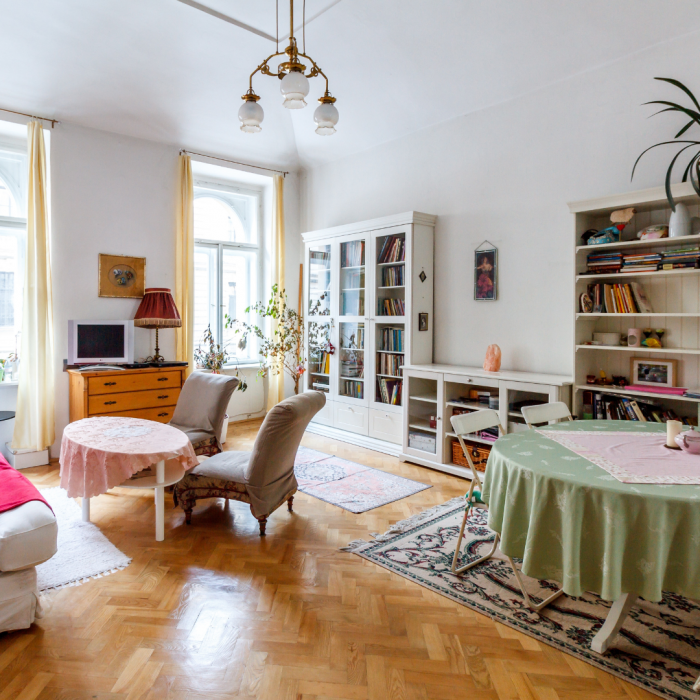
Identifying Apartment Noise
There is an abundance of possible issues that can contribute to loud noise and disruptions. Dealing with noisy apartment neighbors can be a frustrating and stressful experience. You may have better success solving the problem if you can pinpoint exactly where the noise comes from.
- Keep a noise log: Start by writing where the noise is. Next, you can document how long it lasts, and what type of sound it is. It will be important to note if it is music, talking, stomping, or something different. A noise log will help you identify patterns and pinpoint the source of the sound.
- Listen carefully: Try to identify the direction the noise is coming from. If it’s coming from above, it may be due to heavy foot traffic or furniture being moved. If it’s coming from below, it may be due to the neighbor’s TV or music.
- Check for common noise sources: Ask yourself if the noise comes from a common area, such as the hallway or stairwell. The noise disturbances most likely come from your direct neighbor, but it is worth checking other places.
- Consider soundproofing your apartment: If the noise continues and you can’t identify the source, consider soundproofing your walls. This can be done through simple measures such as hanging heavy curtains or purchasing soundproofing materials.
Remember that it’s important to approach the situation calmly and carefully. It’s possible that the noise may be happening accidentally or whoever is making the noise, has no idea how severe it is.
How To Soundproof Your Apartment
Excessive noise can disrupt your life and mess up your routine. No one deserves to be unhappy in their apartment due to a bad noise experience. To help improve your comfort at home, consider soundproofing your apartment.
- Use acoustic foam panels: A simple fix and a great long-term solution. Acoustic panels can be placed on walls, ceilings, or floors to absorb sound waves and reduce noise transmission. These panels come in different shapes and sizes and can be easily installed with adhesive strips.
- Hang heavy curtains: Thick and heavy curtains can help absorb sound and reduce noise transmission through windows. Curtains can also add an extra insulation layer to the window to keep out external noise.
- Install weatherstripping: Applying weatherstripping around windows and doors can help reduce noise transmission and block drafts. This can help to minimize the amount of outside noise that enters your apartment.
- Add rugs or carpets: Hard surfaces like hardwood or tile floors can reflect sound waves and amplify noise. Adding rugs or carpets can help absorb sound and reduce noise transmission.
- Use door sweeps: Door sweeps can help seal the gap between the door and the floor, reducing noise transmission through the gap.
- Consider soundproof curtains: Soundproof curtains are designed to block out external noise and can be hung over windows or doors.
It’s important to remind yourself soundproofing can help reduce noise, it may not eliminate it. You may need to find other solutions and address it directly, whether by talking to your neighbors, contacting your landlord, or taking other measures to minimize the noise.
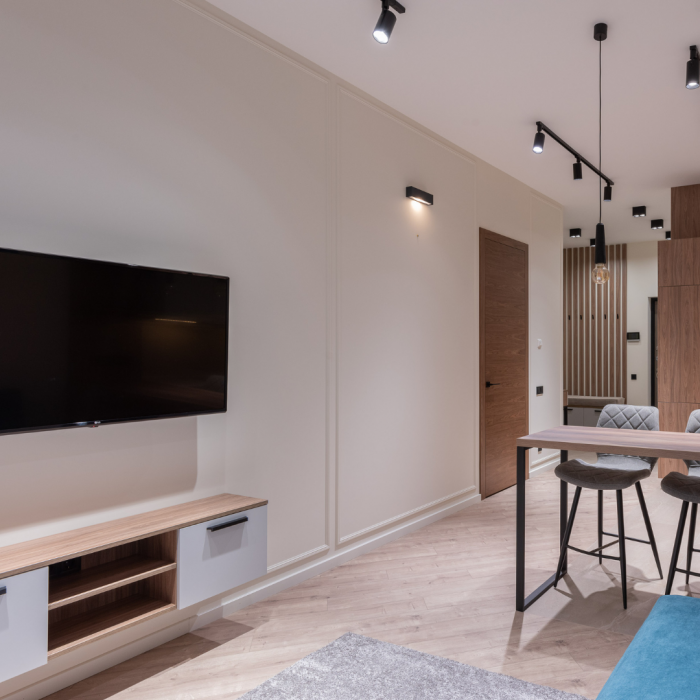
Talking To Apartment Neighbors
Your neighbors may be the most helpful resource for eliminating apartment noise. Dealing with noisy apartment neighbors can be a sensitive issue, and it’s important to approach the situation calmly.
- Pick a time to discuss: Make sure you talk to your neighbor at a time when they are most likely available and not in a rush. It’s essential to avoid times when they may be stressed or distracted, such as early in the morning or late at night.
- Be polite and respectful: Start the conversation by introducing yourself and being polite. Avoid using aggressive language, as this can cause defensiveness and make the situation worse.
- Be specific about the type of noise you are hearing and when it occurs. Help your neighbor understand the situation so you can come to a solution.
- Offer possible solutions: Be prepared to offer some possible solutions that could help reduce the noise, such as setting specific quiet hours, using rugs or mats to absorb sound, or relocating noisy activities to a different room.
- Listen to your neighbor: It’s important to listen to your neighbor to discuss the possible root cause of the noise. They may have reasons for the noise that you’re not aware of, and finding a solution that works for both parties is the best outcome.
- Follow up: If your neighbor agrees to reduce the noise, check in with them after a few days. You can let them know you appreciate the effort. If the noise situation doesn’t improve, consider contacting your property manager.
Remember that talking with your neighbor about noise issues can be a delicate situation, and it’s important to approach it with empathy and understanding. There are many reasons that noise could be made, such as night shifts, different hobbies, young children, or many other reasons, so it is crucial to be respectful when approaching your neighbor.
Documenting Apartment Noise
Documenting external apartment noise is an important step in addressing noise issues with your landlord or property manager. You may need additional evidence or documentation to showcase the disturbances.
- Record the noise: Use your smartphone to record the sound. Recordings can be helpful if you need to provide evidence to your landlord.
- Take note of the source: Try to identify the source of the noise, such as the apartment number or location of the noise. This can help your landlord identify the source of the apartment noise and take appropriate action.
- Measure the noise level: You can use a smartphone app to accurately measure the amount of noise. This can provide an objective measurement of the noise and help you document the severity of the problem.
- Talk to your neighbors: Open up a discussion and ask if they are also experiencing the same noise issues. You can help each other determine if the noise is coming from just one apartment or a building-wide issue.
- Contact your landlord or property manager: Once you have documented the noise, get in touch with someone working in your community. Provide them with the information you have collected. They may be able to take action to address the noise issue.
Remember, documenting external apartment noise is an important step in resolving noise issues, but it’s also important to approach the situation calmly and respectfully.
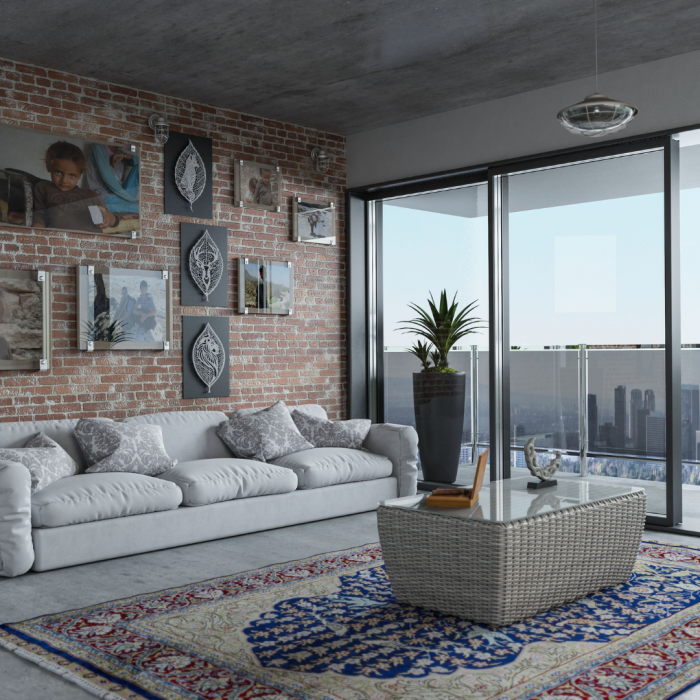
Contact Landlord Or Property Management
If you’re experiencing noise problems from a neighboring apartment, it’s important to contact your community.
- Review the lease agreement: Check your contract to see if there are any noise-related points that you should look into.
- Contact your landlord or property management in writing: It’s best to provide written notice through documentation, so consider sending an email. This provides a clear record of your communication and can help ensure that your concerns are addressed.
- Be specific about the noise problem: When you reach out be as clear as possible, including the type of noise, when it occurs, and how it’s affecting you.
- Provide documentation: If you have a noise log or recordings of the noise, provide them to your landlord or property management as evidence of the noise problem.
- Offer possible solutions: Offer possible solutions that could help reduce the noise, such as setting specific quiet hours, relocating noisy activities to a different room, or installing soundproofing measures.
- Request a follow-up: Ask your landlord or property management to ensure that the issue is being addressed by contacting you when it’s resolved.
It’s essential to approach the situation in a professional and respectful manner, and give your landlord or property management time to address the issue. If the issue persists, follow up with them and consider contacting local authorities or seeking legal advice.
Contact The Police Or Apartment Security
If the problem continues and there’s no resolution even after contacting your landlord or property management, it may be time to get local authorities or outside parties involved.
If the problem continues to be severe, you may need to speak with your local police department. Provide your documentation of the noise problem, and any recordings you have. Explain that your property management has been unresponsive. This is why it is important to document any communication between you and your community.
Escalating a noise situation should be a last resort after you’ve tried to resolve the issue in a professional and respectful manner. Taking the appropriate steps to address noise issues can help improve your quality of life. You don’t need to continue to live with noise disturbances.
Tired of noisy apartment neighbors? Find a new apartment!
Categorised in: Apartment Living
This post was written by Isabella Housel
Isabella Housel is a passionate and versatile professional writer with a deep love for words and a commitment to crafting compelling content that engages, informs, and inspires. With many years of experience in the industry, she has honed her skills across various genres, from creative storytelling to informative articles and technical documentation.


